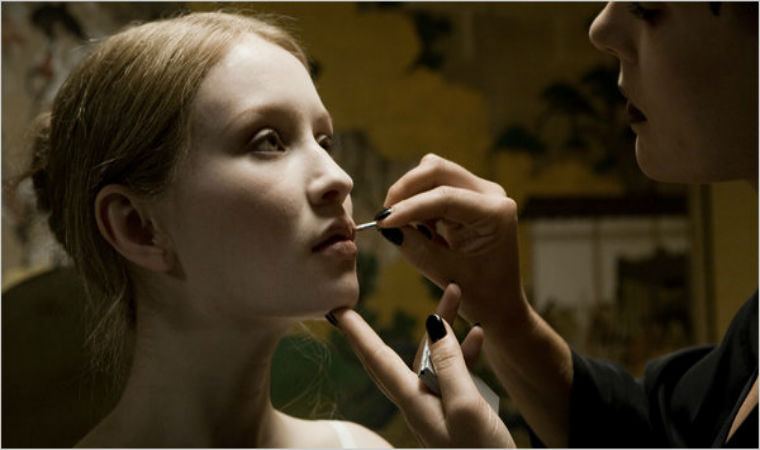Festivali CANNES 2011
At Cannes, Women With Diverse Visions

|
CANNES — This year, for the first time, four films by women directors, worlds apart in approach and theme, are in competition for the Palme d'Or. Two of the entries come from film veterans. The Scottish director Lynne Ramsay's "We Need to Talk About Kevin," starring Tilda Swinton, is a taut piece of work that focuses on the mother of a psychotic boy. From Japan, Naomi Kawase's "Hanezu No Tsuki," screening on Wednesday, marks the director's second time in competition since her prize-winning "The Mourning Forest" in 2007. And there are two newer voices on the scene. The Australian novelist and debut director Julia Leigh has brought "Sleeping Beauty," a quietly terrifying fairy tale that has raised goosebumps and some hackles, while "Polisse," by the French actress-director Maïwenn Le Besco, who credits herself simply as Maïwenn, set in a tough-talking Paris police department's child protection unit, has been well received, mostly by the French, winning lots of those little Gold Palms in the trade magazine's love/hate charts. In Ms. Leigh's "Sleeping Beauty," the lead character, Lucy, played by a palely exquisite Emily Browning, is a student who spends drugged nights in a vast mansion for the pleasure of rich old men — and for money. She lays on a wide bed that appears suspended in space and time. Ms. Leigh called this setting the Sleeping Beauty Chamber. "We all know about 'Sleeping Beauty,"' she said. "The story has deep roots and is quite brutal. We also have ancient tales such as the story of King Solomon spending the night with young virgins." Then, she added, "there are the shady Internet sites." |
Jane Campion, a Palm d'or winner in 1993 for "The Piano," was Ms. Leigh's mentor on "Sleeping Beauty" and helped find production partners. A dynamic fairy godmother, she followed the film to Cannes. Ms. Leigh, 41, was also inspired by tales by Gabriel García Márquez and Yasunari Kawabata, told from the point of view of older men who slept with drugged very young girls. "When my first novel, 'The Hunter,' was published, I had a compelling nightmare that I was being filmed in my sleep. It was very real," she said, adding that she still has that dream, occasionally. "I became aware of how vulnerable we are asleep and how, when we awake, we edit out our vulnerable sleeping state and stitch together our days to create our narrative." Like that dream, the germ of the idea for "Sleeping Beauty" played on her unconscious."I was intrigued and wondered what would happen if you knew that something happened in your sleep and you didn't know what it was — but you knew it wasn't good for you." Ms. Leigh said that while some people have seen Lucy as passive, she feels she is incredibly willful. "If she's submissive, it's a radical submissiveness," she said. "She's reckless and careless, as I remember being in my early 20s. This time can be a very difficult time — you've left your parents, and you don't have financial support." She added: "We don't give enough credence to that passage of life, and in fact, not everybody reaches the shore. I did lose some close friends at that age ... |

